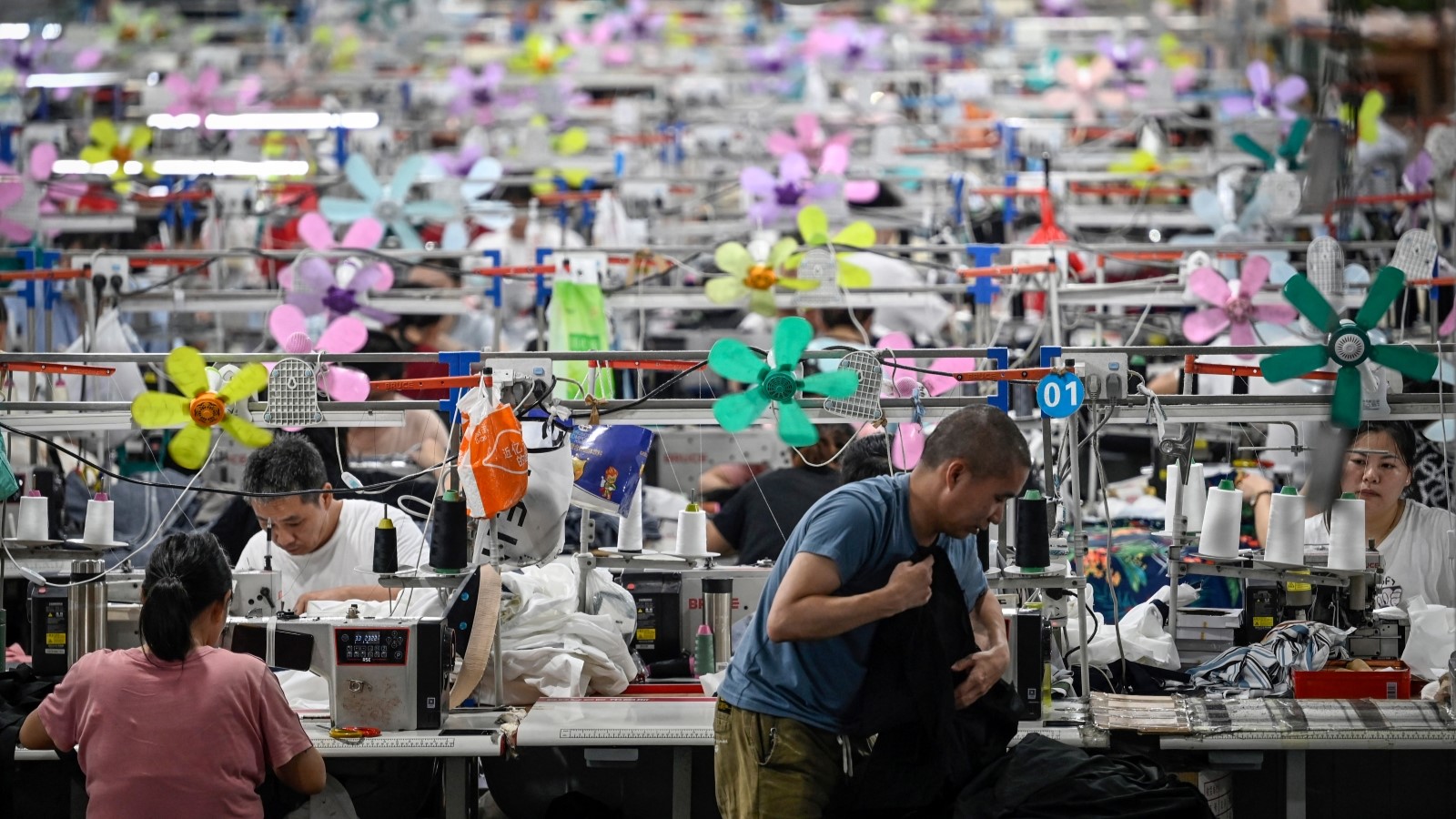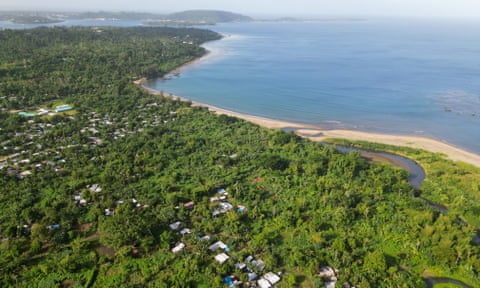
This week's TBLI Talk event
September 12th, 2024
The Dummies Guide to ESG Data
Once you have the ESG data, how do you produce ESG analysis and integration?
Introduction: What kind of ESG/sustainability is possible after 25 years?
What you'll learn:
- How to estimate indirect water consumption, the scope 3 of water, and how to integrate it into your strategic analysis
- How to assess tax optimization risk and integrate that into financial analysis ?
- How to assess the climate transition plan and its greenwashing risk and communicate towards companies and final investors ?
Dr Grégory Schneider-Maunoury - 25 years of experience in sustainable finance and notably in the ESG analysis for CSR rating agencies (ARESE, Vigeo, Ethifinance) stock broker (CM CIC Securities), asset managers (Dexia AM, Humanis Gestion d’Actifs) and asset owners (Humanis).
Click here to sign up & attend live!
 Would you like to watch a recording of a past TBLI Talk event? Visit this page
Would you like to watch a recording of a past TBLI Talk event? Visit this pageTBLI Capital Connect expansion
We've expanded our Capital Connect service so start-ups and companies without significant budget for fundraising efforts can tap into our extensive network of investors, and get connected to curated investor matches that are actively investing in your sector.
Are you currently looking to meet impact investors? This service might be just for you!
More info
Arrange call to learn more
As fast fashion giant Shein embraces AI, its emissions are soaring

The company nearly doubled its emissions in 2023, making it the biggest polluter in the industry.
In 2023, the fast fashion giant Shein was everywhere. Crisscrossing the globe, airplanes ferried small packages of its ultra-cheap clothing from thousands of suppliers to tens of millions of customer mailboxes in 150 countries. Influencers’ “#sheinhaul” videos advertised the company’s trendy styles on social media, garnering billions of views.
At every step, data was created, collected, and analyzed. To manage all this information, the fast fashion industry has begun embracing emerging AI technologies. Shein uses proprietary machine-learning applications — essentially, pattern-identification algorithms — to measure customer preferences in real time and predict demand, which it then services with an ultra-fast supply chain.
As AI makes the business of churning out affordable, on-trend clothing faster than ever, Shein is among the brands under increasing pressure to become more sustainable, too. The company has pledged to reduce its carbon dioxide emissions by 25 percent by 2030 and achieve net-zero emissions no later than 2050.
But climate advocates and researchers say the company’s lightning-fast manufacturing practices and online-only business model are inherently emissions-heavy — and that the use of AI software to catalyze these operations could be cranking up its emissions. Those concerns were amplified by Shein’s third annual sustainability report, released late last month, which showed the company nearly doubled its carbon dioxide emissions between 2022 and 2023.
“AI enables fast fashion to become the ultra-fast fashion industry, Shein and Temu being the fore-leaders of this,” said Sage Lenier, the executive director of Sustainable and Just Future, a climate nonprofit. “They quite literally could not exist without AI.” (Temu is a rapidly rising e-commerce titan, with a marketplace of goods that rival Shein’s in variety, price, and sales.)
In the 12 years since Shein was founded, it has become known for its uniquely prolific manufacturing, which reportedly generated over $30 billion of revenue for the company in 2023. Although estimates vary, a new Shein design may take as little as 10 days to become a garment, and up to 10,000 items are added to the site each day. The company reportedly offers as many as 600,000 items for sale at any given time with an average price tag of roughly $10. (Shein declined to confirm or deny these reported numbers.) One market analysis found that 44 percent of Gen Zers in the United States buy at least one item from Shein every month.
That scale translates into massive environmental impacts. According to the company’s sustainability report, Shein emitted 16.7 million total metric tons of carbon dioxide in 2023 — more than what four coal power plants spew out in a year. The company has also come under fire for textile waste, high levels of microplastic pollution, and exploitative labor practices. According to the report, polyester — a synthetic textile known for shedding microplastics into the environment — makes up 76 percent of its total fabrics, and only 6 percent of that polyester is recycled.
And a recent investigation found that factory workers at Shein suppliers regularly work 75-hour weeks, over a year after the company pledged to improve working conditions within its supply chain. Although Shein’s sustainability report indicates that labor conditions are improving, it also shows that in third-party audits of over 3,000 suppliers and subcontractors, 71 percent received a score of C or lower on the company’s grade scale of A to E — mediocre at best.
Rich countries silencing climate protest while preaching about rights elsewhere, says study

By: Matthew Taylor
Report says governments in global north increasingly using draconian measures while criticising similar tactics in global south
Wealthy, democratic countries in the global north are using harsh, vague and punitive measures to crack down on climate protests at the same time as criticising similar draconian tactics by authorities in the global south, according to a report.
A Climate Rights International report exposes the increasingly heavy-handed treatment of climate activists in Australia, Germany, France, the Netherlands, Sweden, the UK and the US.
It found the crackdown in these countries – including lengthy prison sentences, preventive detention and harassment – was a violation of governments’ legal responsibility to protect basic rights to freedom of expression, assembly, and association.
It also highlights how these same governments frequently criticise regimes in developing countries for not respecting the right to protest peacefully.
“Governments too often take such a strong and principled view about the right to peaceful protest in other countries – but when they don’t like certain kinds of protests at home they pass laws and deploy the police to stop them,” said Brad Adams, director at Climate Rights International.
Across Europe, the US and the UK, authorities have responded to non-violent climate protests with mass arrests and draconian new laws that have resulted in long prison sentences. In some instances those who have taken part have been labelled as hooligans, saboteurs or ecoterrorists by politicians and the media.
Senior human rights advocates and environmental campaigners have raised concerns about the crackdown and called on governments to protect the right to non-violent protest.
“These defenders are basically trying to save the planet, and in doing so save humanity,” Mary Lawlor, the UN special rapporteur on human rights defenders, told the Guardian last year. “These are people we should be protecting, but are seen by governments and corporations as a threat to be neutralised. In the end it’s about power and economics.”
The escalating climate crisis has resulted in record-breaking temperatures around the world in 2024, driving food shortages, mass movements of people and economic hardship – as well as deadly fires and floods.
But the report found that rather than taking urgent measures to rapidly reduce the use of fossil fuels and halt ecological collapse, many relatively wealthy countries have instead focused on those trying to stop those raising the alarm by taking part in protests and civil disobedience.
“You don’t have to agree with the tactics of climate activists to understand the importance of defending their rights to protest and to free speech,” said Adams. “Instead of jailing climate protesters and undermining civil liberties, governments should heed their call to take urgent action to address the climate crisis.”
The report’s authors highlighted several examples of developed countries lauding the importance of the right to protest on the international stage at the same time as undertaking harsh and punitive crackdowns at home.
Welcoming a UN report in July this year, the UK government said: “These rights [to peaceful assembly and protest] are essential to the functioning of society, providing a platform for citizens to advocate for positive change. Nonetheless, civic space is increasingly contested as authoritarian governments and actors, who feel vulnerable to scrutiny and accountability, seek to silence dissent.”
Tuesday’s report also found:
-
Record prison sentences for non violent protest in several countries including the UK, Germany and the US.
-
Preemptive arrests and detention for those suspected of planning peaceful protests.
-
Draconian new laws passed to make the vast majority of peaceful protest illegal.
-
Measures to stop juries hearing about people’s motivation for taking part in protests during court cases, which critics say fundamentally undermines the right to a fair trial.
ESG investment isn’t dead; priorities are changing: Millani

Some firms change sustainability communications in light of ESG pushback in the U.S.
The topic of ESG among Canadian institutional investors is still prevalent. Yet, priorities have shifted and some firms have updated their communications strategy due to the rise of ESG pushback in the U.S, according to a sentiment study released Monday by Montreal-based Millani.
The study involved interviews in June 2024 with 37 assets owners and asset managers representing $5.4 trillion in assets under management.
“It seems that we are in the midst of the inevitable growing pains associated with the formalization of new systems and structures,” Millani said. “However, it is clear that the materiality of E, S and G issues is now well understood by investors and is not going away.”
E, S and G
Between the environmental, social and governance themes under the ESG umbrella, the environmental theme, or “E,” remained the top priority for investors, with 54% of respondents mentioning environmental sub-topics as a focus for their portfolios, voting or engagements, the study found.
The social theme, or “S,” followed, with its sub-topics mentioned 29% of the time. Institutional investors recognized it as a growing market risk, the report noted, with a particular focus being understanding Indigenous rights, reconciliation and development within the Canadian business context.
Governance, or “G,” trailed behind, with its sub-topics mentioned 17% of the time.
Shifting priorities
The study also looked at four ESG focus areas including climate; biodiversity; equity, diversity and inclusion (EDI); and human capital, human rights, Indigenous reconciliation and community relationship.
Among those areas, attention on EDI decreased the most over a two-year period. It was mentioned by 51% of respondents in June 2022, but only 16% of them in June 2024.
On the other hand, attention on biodiversity increased the most during this period, with respondents mentioning it 35% of the time in June 2024, compared to 16% of the time two years prior.
ESG pushback
In light of ESG pushback in the U.S., 94% of Canadian asset managers said they have not changed their investment process, the study found. However, 46% of respondents suggested “the term is losing weight in how it is used.”
Meanwhile, 21% said politicization of the topic has led to “a thorough review” of their communications around ESG.
Asset managers said the pushback south of the border has made their jobs more difficult and has brought more scrutiny.
The study further found that asset managers used terms like “sustainable investing” or “responsible growth” to give the perception that an investment strategy has a wider scope than just “ESG.” However, 71% of respondents said they used “ESG” when referring to certain products internally because it is easier, Millani said.
Pacific islands submit court proposal for recognition of ecocide as a crime

Vanuatu, Fiji and Samoa want international criminal court to class environmental destruction as crime alongside genocide
Three developing countries have taken the first steps towards transforming the world’s response to climate breakdown and environmental destruction by making ecocide a punishable criminal offence.
In a submission to the international criminal court on Monday, they propose a change in the rules to recognise “ecocide” as a crime alongside genocide and war crimes.
If successful, the change could allow for the prosecution of individuals who have brought about environmental destruction, such as the heads of large polluting companies, or heads of state.
Vanuatu, Fiji and Samoa have proposed a formal recognition by the court of the crime of ecocide, defined as “unlawful or wanton acts committed with knowledge that there is a substantial likelihood of severe and either widespread or long-term damage to the environment being caused by those acts”.
The proposal was tabled before the ICC in New York on Monday afternoon, and will have to be discussed in full at a later date. Holding full discussions on the proposal is a process likely to take some years, and will face fierce opposition, though much of it will be behind the scenes as most countries will not wish to openly speak out against it.
Philippe Sands KC, a prominent international lawyer and professor of law at University College London, acted as a co-chair of the independent expert panel for the legal definition of ecocide, convened by the Stop Ecocide Foundation. He told the Guardian he was “100% certain” that ecocide would eventually be recognised by the court.
“The only question is when,” he said. “I was sceptical at first, but now I am a true believer. There has already been real change, as some countries have put it in domestic law. I think this is the right idea at the right time.”
Belgium recently adopted ecocide as a crime, and the EU has changed some of its guidance on international crime to include it as a “qualified” offence. Mexico is also considering such a law.
